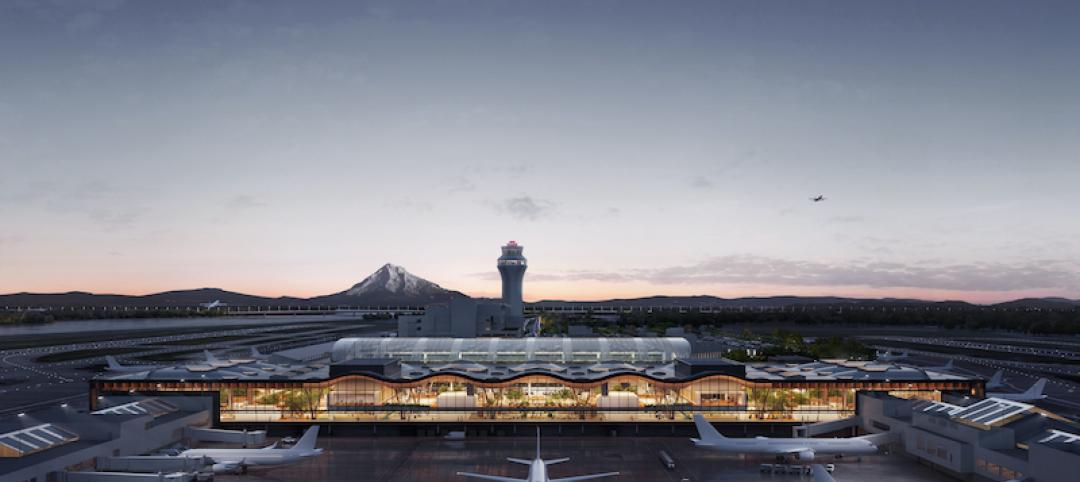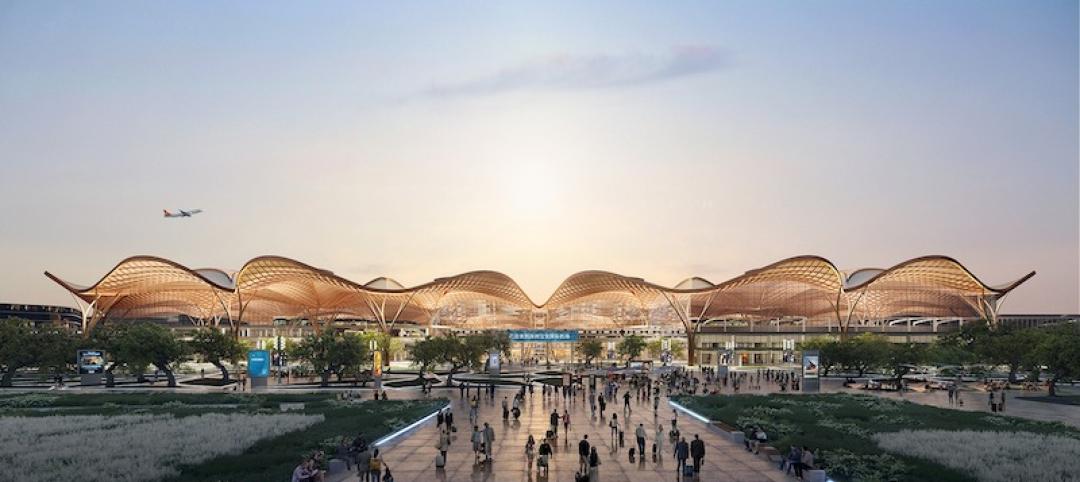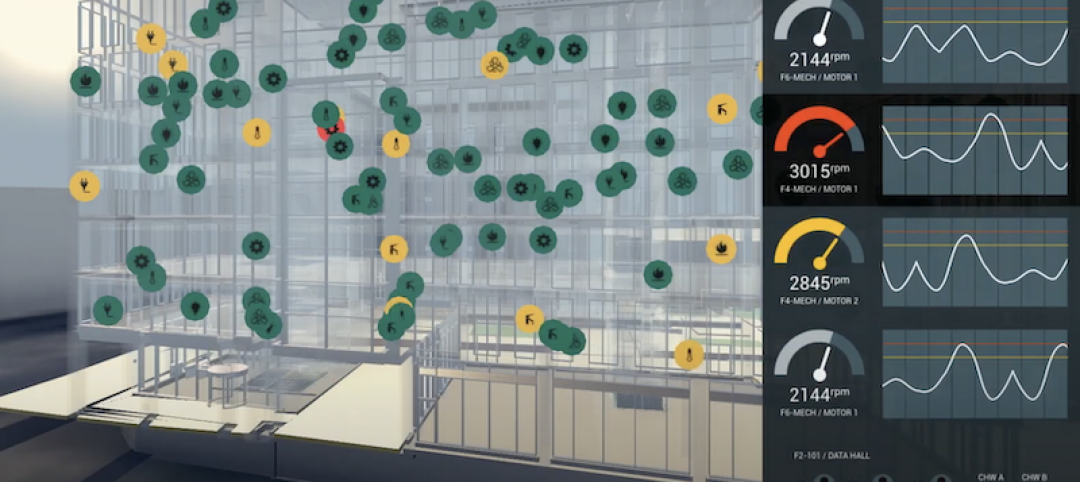The new Anaheim Regional Transportation Intermodal Center (ARTIC) sets a precedent for civic-minded transit hubs in the United States. HOK designed ARTIC, which represents the next generation of public transportation in Southern California, as an innovative new transit station that serves as a destination in itself. The grand opening ceremony for the community was on Dec. 13.
“ARTIC is a community-focused building that will change how people think about public transportation,” said Ernest Cirangle, FAIA, LEED AP, Design Principal for HOK’s Los Angeles office. “This iconic facility is a symbol of a new era of public transit and was only made possible because of city leaders’ unwavering commitment to a contemporary and bold design.”
Projected to serve the transportation needs of more than three million people annually in the coming years, the 67,000-sf transit hub links commuter and regional rail service and intercity bus systems including Amtrak, Metrolink, OCTA bus service, Anaheim Resort Transportation (ART), Megabus.com, and Greyhound.
ARTIC’s flexible design ensures that it can serve as a southern terminus for California’s future high-speed rail system. In addition to accommodating passenger arrivals, departures and transfers, ARTIC integrates amenities such as transit-oriented retail, Wi-Fi and charging stations, parking, bike racks, lockers, community space and specialty dining.
HOK won an international competition to design the project. Officials challenged the team to create an icon that would welcome a new age of public transportation into the region. The station also was conceived as a catalyst for transforming Anaheim’s core into a pedestrian-friendly zone that promotes connectivity and a vibrant, mixed-use environment. Known as the “Platinum Triangle,” the area around the station includes destinations such as Angel Stadium, the Honda Center, the HOK-designed Anaheim Convention Center and nearby Disneyland.
“The master plan establishes a clear pedestrian pathway flanked by future, mixed-use development with ARTIC as the primary destination,” said Cirangle. “The extroverted building has a significant but welcoming presence and will help spur transit-oriented development.”
Drawing inspiration from classic grand transit halls including Grand Central Terminal in New York, along with the structural elegance of local airship hangars, the team developed a 21st-century design concept for the forward-looking transit facility. The design achieves ARTIC’s signature parabolic form by employing a diagrid structural system of diamond-shaped steel arches infilled with translucent ETFE (ethylene tetrafluoroethylene) pillows. At the north and south ends, freestanding curtain walls bring in daylight and open the building to views. The long-span, grid shell structure creates a grand, light-filled atrium space that accommodates open circulation.
The design team used building information modeling (BIM) to develop ARTIC’s complex form, geometry and functions, to navigate the complexities of the building systems, and to study the building’s tolerances and environmental performance. “By using BIM, we were able to optimize and coordinate the precise geometry of the vaulted diagrid shell, ETFE facade technology, metal panel rain screen systems and glass,” said Albert Kaneshiro, AIA, LEED AP, HOK’s project manager. “BIM allowed us to match ETFE connections with the geometry of the steel in a structure that is constantly expanding and contracting.”
Based on the city’s goals for sustainability, the team designed ARTIC for U.S. Green Building Council LEED Platinum certification. The vault-shaped structure acts in concert with advanced mechanical systems to optimize energy efficiency. Inflated ETFE cushions cast a soft, translucent light throughout the great hall, while the additional frit pattern on the outer layer reduces solar heat gain. Convection currents naturally ventilate the building as heat rises from the lower south end up to the north side and out through operable louvers. The radiant heating and cooling floor system and optimized HVAC system will help reduce ARTIC’s energy consumption by 50 percent.
LEDs mounted on the diagrid structure illuminate the ETFE pillows in gradations of shifting colors, providing a striking presence on the night skyline. As darkness falls, ARTIC becomes lit from within and acts as a beacon from the freeways and local streets.
HOK provided architecture, interior design, master planning and urban design services. Parsons Brinckerhoff was the project manager and served as the rail and civil engineer. Other consultants include Thornton Tomasetti as structural engineer, Buro Happold as MEP and enclosure engineering, SWA as landscape designer, and Clark Construction as general contractor.
Related Stories
Resiliency | Aug 19, 2021
White paper outlines cost-effective flood protection approaches for building owners
A new white paper from Walter P Moore offers an in-depth review of the flood protection process and proven approaches.
Airports | Aug 13, 2021
Kansas City International Airport’s new terminal breaks ground
SOM designed the project.
Airports | Aug 13, 2021
Kansas City International Airport’s new terminal breaks ground
SOM designed the project.
Airports | Jul 26, 2021
NORR designs the UK’s first satellite launch Space Hub
The project will be located in Sutherland, Scotland.
Wood | Jul 16, 2021
The future of mass timber construction, with Swinerton's Timberlab
In this exclusive for HorizonTV, BD+C's John Caulfield sat down with three Timberlab leaders to discuss the launch of the firm and what factors will lead to greater mass timber demand.
Resiliency | Jun 24, 2021
Oceanographer John Englander talks resiliency and buildings [new on HorizonTV]
New on HorizonTV, oceanographer John Englander discusses his latest book, which warns that, regardless of resilience efforts, sea levels will rise by meters in the coming decades. Adaptation, he says, is the key to future building design and construction.
Airports | Jun 9, 2021
ZGF unveils latest renderings of Portland International Airport’s main terminal
An undulating wooden roof highlights the project.
Airports | May 27, 2021
Grimshaw wins competition to design Shenzhen Airport East Integrated Transport Hub
The competition sought to find a design that created an integrated intermodal transport hub that could act as a new urban gateway.
Digital Twin | May 24, 2021
Digital twin’s value propositions for the built environment, explained
Ernst & Young’s white paper makes its cases for the technology’s myriad benefits.
Multifamily Housing | Mar 28, 2021
Smart home technology 101 for multifamily housing communities
Bulk-services Wi-Fi leads to better connectivity, products, and services to help multifamily developers create greater value for residents–and their own bottom line.


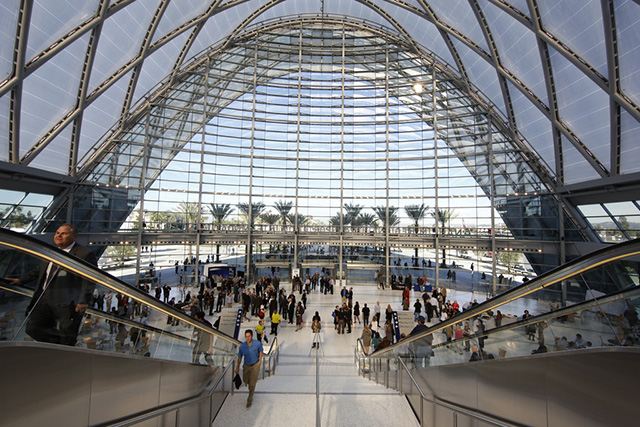
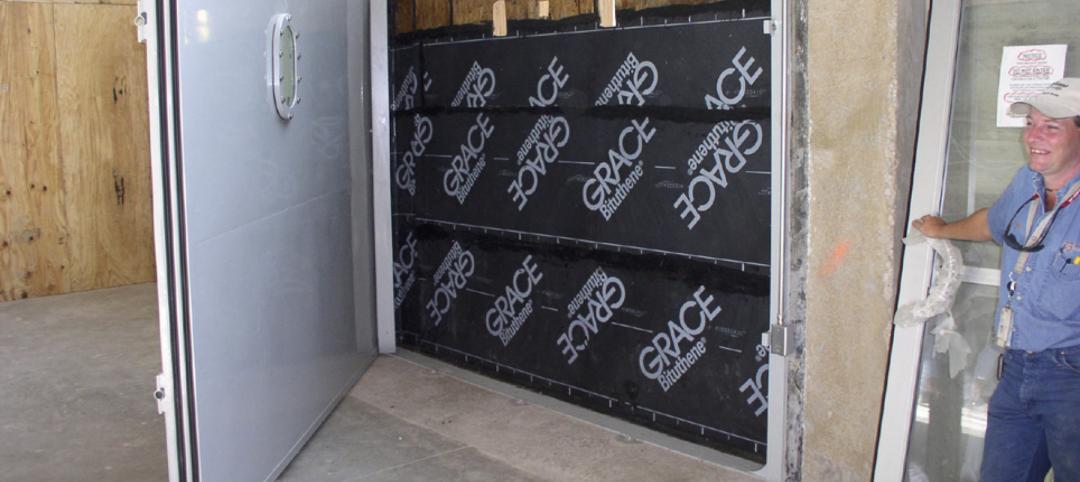
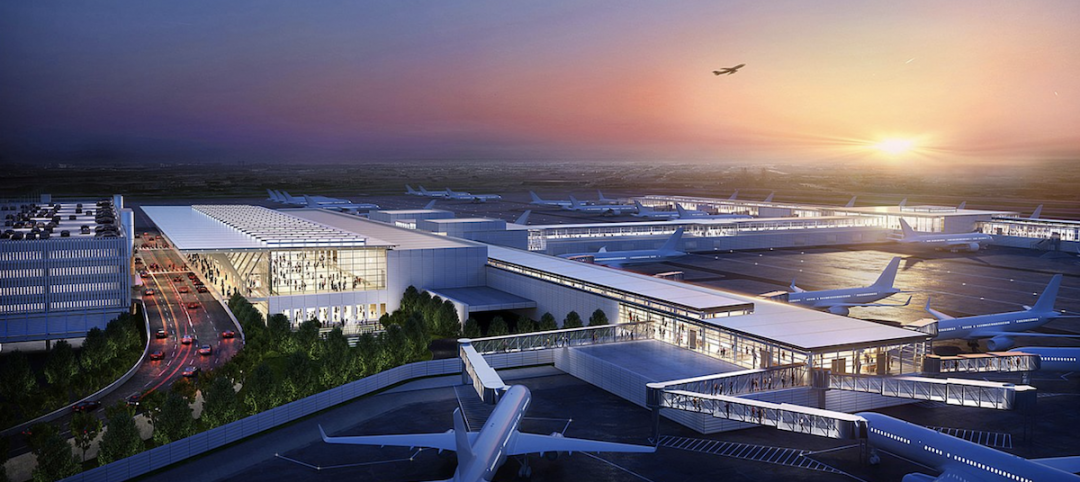
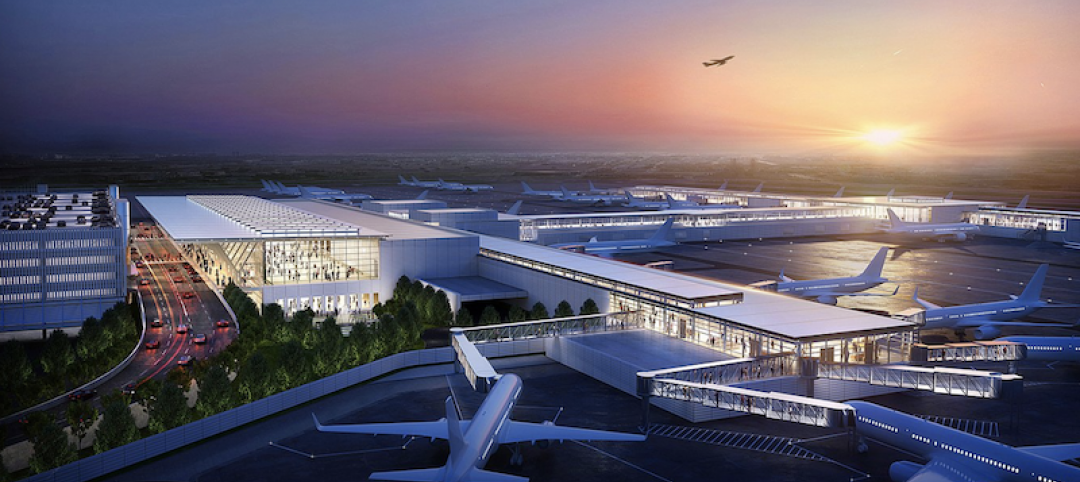
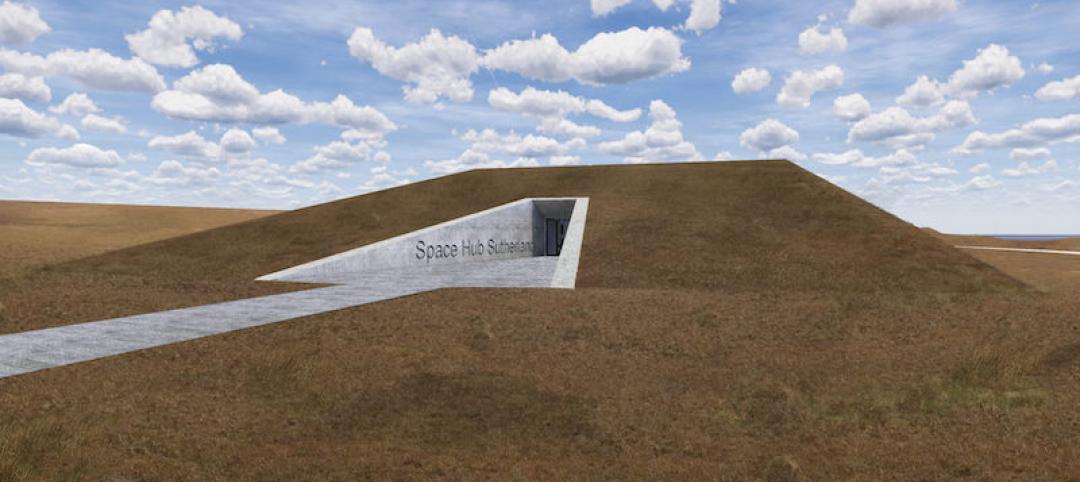
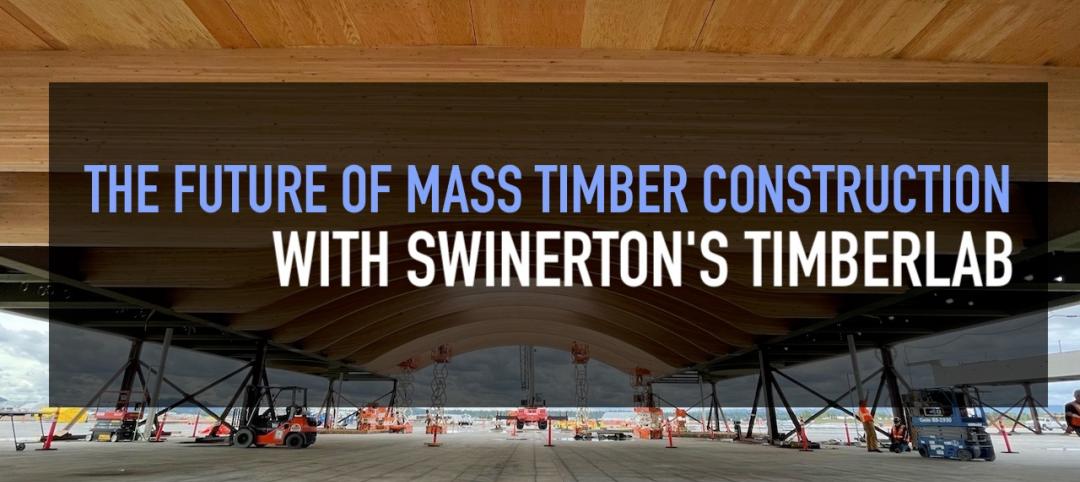
![Oceanographer John Englander talks resiliency and buildings [new on HorizonTV] Oceanographer John Englander talks resiliency and buildings [new on HorizonTV]](/sites/default/files/styles/list_big/public/Oceanographer%20John%20Englander%20Talks%20Resiliency%20and%20Buildings%20YT%20new_0.jpg?itok=enJ1TWJ8)
